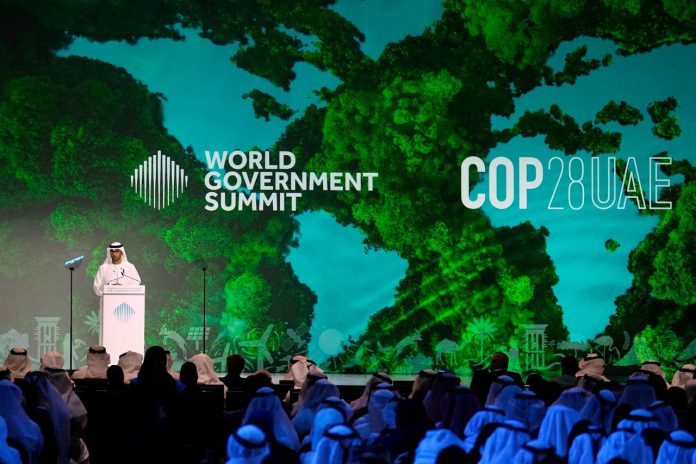Somali Magazine – Over 160 world leaders are expected to jet into the COP28 climate summit in the United Arab Emirates, Dubai, which officially opened on November 30. The COP (Conference of the Parties) summit brings together a broad range of discussions, mainly touching on the losses and damages caused by the wealthy and biggest carbon emitters in the world and initiating interventions to compensate the affected and developing countries globally.
Several power players in the world confirmed their attendance at the climate change conference of parties (COP28), which runs from November 30 to December 12.
Philanthropists and billionaires among politicians will primarily participate in various climate debates and negotiations and assess where the world stands when it comes to slowing global warming to 1.5 degrees Celsius.
Heads of state and prime ministers from 167 countries, including British PM Rishi Sunak, French President Emmanuel Macron, Prime Minister of Japan Fumio Kishida, and Luiz Inacio Lula da Silva, President of Brazil, are highly invited guests who confirmed to attend the largest climate summit.
The conference not only underscores countries’ or organisations’ commitments towards tackling climate change but also brings diverse international views and solutions to the negotiating table and further nudges leaders to take concrete action.
Despite the fact that many influential global leaders confirmed attending, some still confirmed not to attend. US President Joe Biden, Pope Francis, Xi Jinping of China, Russian President Vladimir Putin, Israel’s Prime Minister Benjamin Netanyahu, and Syrian President Bashar Assad confirmed they would not attend the talks.
Being the world’s biggest carbon emitters, the US and China will send high-level representatives, including US Vice President Kamala Harris.
The COP28 Attendees
Philanthropist and investor Bill Gates is one of the high-profile guests that will attend COP28. He and King Charles will be at the front desk to launch a business and philanthropic forum.
Bill Gates is one of the world’s richest people and a leading investor in clean energy projects, and through his Breakthrough Energy Ventures fund, he takes stakes in companies and technology to make a big contribution to combating climate change.
“I’ve funded US$2 billion in clean-energy technologies across every sector of the economy and plan to fund that much again in the next few years,” Gates says in his personal blog.
Britain’s King Charles III, India’s PM Narendra Modi, BlackRock CEO Larry Fink, influential activist Ineza Umuhoza Grace, and popular spiritual leader Sadhguru are also on the list of those attending the conference and having the opportunity to effect change.
Climate activists attending COP28 will be able to protest and demonstrate for climate action in a hub called Voices for Action within the Green Zone at Expo City Dubai.
Is Africa represented at the COP28?
Africa is going into the COP 28 climate conference with a unique advantage: a unified voice from the recent inaugural Africa Climate Summit. This aligns well with a COP 28 leadership committed to pragmatism and action and a determination to elevate the voice of the global south.
At COP28, the various key interveners, like the African Development Bank, will help reshape the global narrative on key issues such as energy transition, nature-based solutions, adaptation finance, reform of multilateral development banks, carbon markets, and restitution for loss and damage.
The United Arab Emirates’ recent $4.5 billion in funding commitments to Africa to achieve real impact towards net-zero goals at scale is a good model for any future funding initiatives. The UAE made the announcement with specific key performance indicators, including the number of megawatts, timelines, project types, and identified partners for execution—including Africa 50. This level of detail and accountability that organisations are tasked with implementing will make the difference between wavering commitments and ones that result in actual funding for bankable, impactful projects.
Africa and the global south at large do not have the luxury of industrialised countries to debate theoretically the issues of fossil fuel use in the transition to global deep decarbonization. The continent must focus on the dual goals of reducing emissions and accelerating economic development. This is in sync with the long-established paradigm of common but differentiated responsibilities in addressing climate change according to different stages of economic and social development.
African nations must be heard and supported to secure necessary financial, technological, and capacity-building resources, allowing them to fully contribute to shaping a more inclusive and equitable global financial landscape that puts the needs of the most vulnerable front and foremost.

